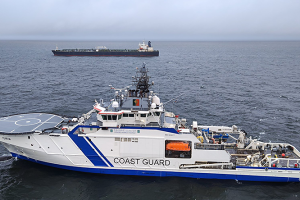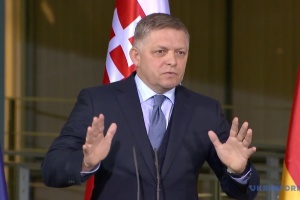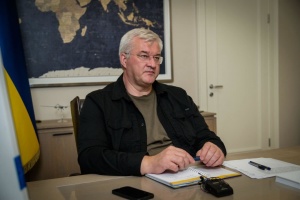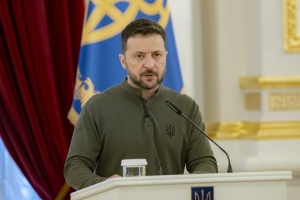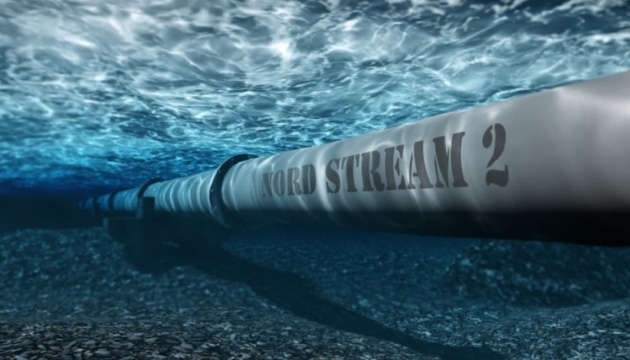
U.S., Germany draft road map to deter Russia from using gas pipe as weapon against Ukraine – media
That’s according to a draft text obtained by Bloomberg News, Ukrinform reports.
Germany is expected to government-level action, which hasn’t been specified, if Russia goes for such an endeavor. The outgoing Chancellor, Angela Merkel, had previously refrained from independent actions targeting Moscow in this regard.
If Russia attempted to use energy as a weapon or commit an act of aggression against Ukraine, Germany would also push for measures to be taken at the EU level, that’s including sanctions to restrict Russia’s energy exports.
A senior U.S. official explained the ambiguous language of the deal as an intentional move as the Administration allegedly seeks not to reveal before Russia the road map of response. Such actions could include limiting the volume of gas exports from Russia to Germany, the official admitted.
At the same time, the language of the deal is almost certainly to disappoint critics who say that the U.S. Administration hasn’t done enough to stop the pipeline from completion after President Joe Biden took over the office despite earlier vows to try to halt the construction.
The pipeline’s critics have long been warning that the project would provide Moscow with too much leverage over European energy security and that the gas pipe could well become a tool of strategic coercion targeting vulnerable countries like Ukraine.
The draft deal also says the U.S. and Germany would jointly work to invest up to $1 billion in a “Green Fund” that would help Ukraine on its way to transition toward cleaner energy, with Berlin set to initially invest $175 million in the Fund, as well as $70 million – on supporting bilateral energy projects with Kyiv.
Germany is also expected to commit to pushing Russia to extend Ukraine’s gas transit contract for as long as 10 years after its expiry date in 2024.
Background
The Nord Stream 2 gas pipeline, with an expected nominal annual capacity 55 billion cubic meters, is set to run under the Baltic Sea from Russia to Germany.
It is operated by Nord Stream 2 AG, a subsidiary wholly owned by Russia’s energy giant Gazprom.
Nord Stream 2 has seen fierce opposition from Ukraine and some Central and Eastern European countries over concerns about Russia using it as energy leverage, increasing own influence in Europe, and because of the massive cut of transit fees for these states, including Ukraine.
The United States earlier hit the project with a range of sanctions, discouraging companies involved from further participation in the pipelaying.
In May 2021, the State Department told Congress that Nord Stream 2 AG and its CEO Matthias Warnig, engaged in sanctionable activity. However, Secretary of State Antony Blinken went on to waive those sanctions, claiming the decision was in the U.S. national interest.
As Ukrinform reported earlier, Co-Chair of the Congressional Ukraine Caucus Marcy Kaptur (D-Ohio) harshly criticized the agreements allegedly to be sealed between the United States and Germany as regards Russia’s Nord Stream gas pipeline project, according to a recent leak in the media.
She stressed that Nord Stream 2, as Russia’s “malign influence project,” will “increase Vladimir Putin’s leverage in Europe and disrupt the NATO alliance."
On July 20, State Department Press Secretary Jen Psaki told a Washington briefing that more official information was to come as regards the U.S.-Germany talks, according to an Ukrinform correspondent.
“I expect that the State Department and others will have more on this soon,” she said.
The press secretary has also made clear that Joe Biden had discussed Nord Stream 2 with Germany’s Angela Merkel during a meeting last week and conveyed “ongoing concerns about how the project threatens European energy security, undermines Ukraine security, and the security of our Eastern Flank NATO allies and partners.”
Also, Biden “directed his team to work with [Merkel’s] team to see how we can address those concerns, even as the pipeline was 90 percent finished when this administration took office.”
At the same time, Ukraine’s security officials, among other things, signaled that during construction the sea bed could be disturbed, dislodging World War 2-era chemical munitions, naval mines, and other items dumped in the area over the past decades, which would effectively damage the ecosystem.
The impact on bird and marine life is another concern, with the Baltic Sea internationally recognized as a particularly sensitive sea area.
On June 15, Members of the EU-Ukraine Parliamentary Association Committee in their joint statement said the completion of the Nord Stream 2 pipeline “will strengthen the role of Russian gas in the European energy mix, endanger national security for the EU and the United States, and threaten the already precarious security and sovereignty of Ukraine.”
im

